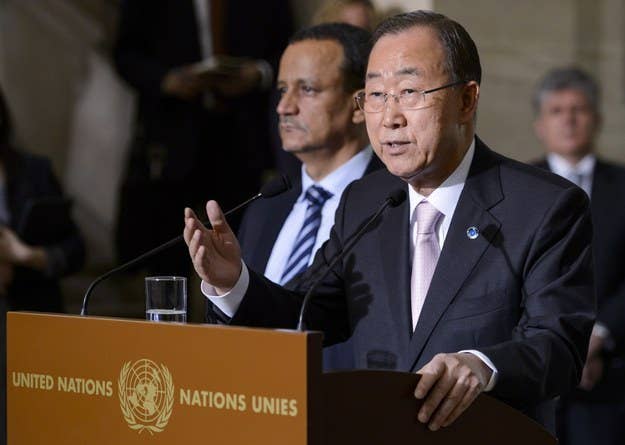The United Nations refused to terminate work with an aviation company despite learning one of its helicopter crews drugged and raped a teenage girl.

According to confidential documents leaked to the Guardian, the U.N. internal complaints unit discovered a UTair manager had requested a staff member "find a girl he could have a 'good time' with" in Kalemie, Democratic Republic of Congo five years ago.
The leaked report – which the U.N. and and UTair kept secret from public knowledge until now – said a young woman was offered a fizzy drink by the crew, then drugged and raped in the managers office. Her body was lit with cigarettes, photographed naked, and she was later dumped naked and unconscious inside the helicopter base.
"He [the guard] further said that [the ground engineer] put a lit cigarette in her anus," the report said. "He also said that [the ground engineer] was very drunk and beat [the victim] severely, including kicking her in the buttocks".
UTair later dismissed the manager and ground engineer referenced in the report from their positions. BuzzFeed News did not immediately receive a response from the U.N. or UTair for this article.
The U.N. was informed of the rape and were warned that it is likely UTair has a much wider culture of sexual exploitation and abuse. Despite this, it has since drawn up new contracts worth millions of dollars with the company.

The U.N., including the office of UN secretary general Ban Ki Moon, were shown the report in 2011. But the humanitarian organisation has since spent more than $543.3 million with the company in contracts across Africa and the Middle East.
The report adds to a series of allegations of sexual abuse made against the UN in recent months, all of which cast doubt on its commitment to tackling sexual exploitation that occurs under its watch.
Last month, U.N. secretary Ban Ki Moon announced an independent review into the alleged abuse of children by French peacekeepers in Africa. A spokesperson for the UN chief said the UN did not want to fail victims of sexual abuse, "Especially when committed by those who are meant to protect them."
In another case of rape, BuzzFeed News reported on the Canadian aid worker who was raped on a UN operating base in remote South Sudan, in which little action was taken to prosecute the perpetuator.
Ron Slye, a professor of law at Seattle University School of Law and an expert in transitional justice, described the U.N. as "notoriously bad" on internal accountability.
"Part of that comes down to what sort of political will there is to stop [sexual] abuse," he said. "If a United Nations contracted employee engaged in a crime against humanity or in genocide, nobody would sit back and say, 'That's too bad. We just have to wait and see if the state is going to prosecute, or if somebody else is going to come along'" and investigate."
